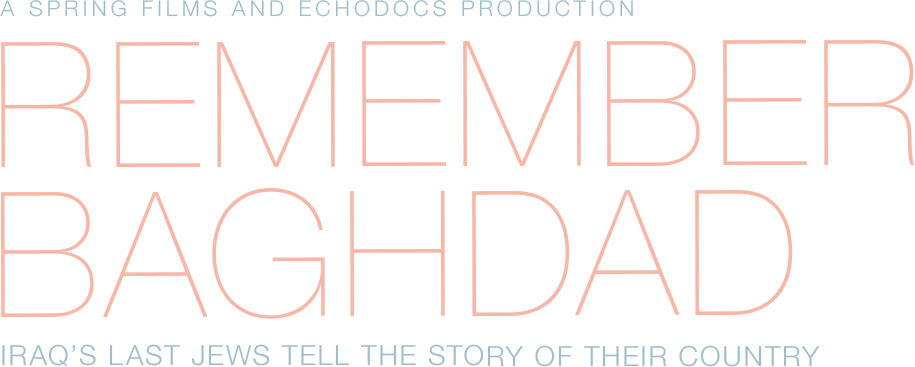The lives of my parents’ families closed down as the British Empire shattered: my father’s community was thrown out of Ireland and my mother’s fled Jamaica. I grew up in London, conscious that people suffer for the crimes of generations long gone.
So when I was between films and was offered a job cataloguing an extraordinary archive of early home movies belonging to an Iraqi-Jewish family, I responded vividly to the news that the Jews of Iraq did well under the British, and paid for it. They had committed no crimes, and unlike mine, nor had their community.
The end of the British Empire was not the only strand that bound their stories together with mine. My mother’s family was ethnically Jewish. And while that was where the historical similarities ended, the smiling faces in the archive and the stark fact that only five Jews remain in Iraq today, awakened my own sense of loss.
At first I just wanted to convey the pain of losing your home. It seemed important, now, right now, to push back at the narrowness of our news, dominated by discussion of economic migrants, desperate refugees and the difficulties of integrating immigrants. The older stories were laments about the pain of exile: “It’s a Long Long Way to Tipperary”, and “By the rivers of Babylon, there we sat down and wept”. I wanted to show that that migrants travel with heavy hearts, give them a voice, and bring back the world that was lost. I knew this must be my next film.
Bit by bit, I was also drawn into the turbulent history of Iraq before Saddam Hussein, infinitely more complex than I knew, and for which Britain and the US bear much of the responsibility. I learned that the Jews once made up a third of the population of Baghdad. They spoke to me of idyllic times, picnics by the Tigris, fancy dress parties and beauty pageants. It was difficult at first to reconcile it all with the brutal place Iraq has become today. I wanted to know, step by step, how this happened.
Their story opens onto everything that happened in the Middle East between the First World War and the Cold War fifty years later. A mosaic emerged telling the story of a nation under intense pressure, descending into darkness. I was surprised by the light moments and unexpected paradoxes: the Arab friends and business partners, the ambivalence about Israel, the genuine affection for home. “Jews, Muslims, Christians, we were all Iraqis” they said.
I pushed on, and ended up going to Iraq at the peak of the ISIS insurgency with a man determined to re-kindle the Jewish presence by returning to buy a home there himself.
Iraq rid itself of its corrupt monarchy but fell victim to a sequence of populist tyrants who built their power using ethnic hatred. The Jews, after thousands of years, were cast as “foreigners”. Pawns, they were on the wrong side of a political story.
The families I filmed were ordinary, but lived through an epic in their kitchens and living rooms, making life and death decisions before school in the morning. I hope people who watch the film will identify with them and recognise ethnic hatred for what it is, and see that is still with us.





